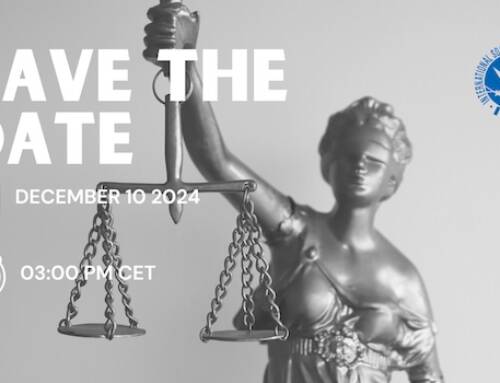
UKRAINE
What is common between the Ukrainian Bar Association’s recommendation to members of the High Council of Justice from the Bar to resign and the European Court of Human Rights’ decision to recognise the Disciplinary Chamber of the Supreme Court of Poland as a court not established in accordance with the law? Let’s look into it and draw parallels with Ukraine.
Reforms are not always for the better
Court which is not a court
On July 22, the ECHR issued a judgement of the “Reczkowitz v. Poland” case, in which it recognised, among other things, that the Disciplinary Chamber of the Supreme Court of Poland was not a court established in accordance with the law. The judgement concerned a lawyer Joanna Reczkowitz.
In July 2017, she was suspended from her duties for a period of 3 years in connection with various violations of the Code of Ethics for Lawyers. Her case was handled just by the Disciplinary Chamber of the Supreme Court, recently established as part of a large-scale judicial reform initiated by the Polish government in 2017.
The applicant complained that the judges of the Disciplinary Chamber had been appointed by the President of Poland on the recommendation of the National Judicial Council, which is a clear violation of national law and the principles of the rule of law, separation of powers and independence of the judiciary. The fact is that before the judicial reform, members of the National Judicial Council were elected from among the judges by judges and this rule was firmly established in Polish law and unequivocally confirmed by the Constitutional Court of Poland in its judgement of July 18, 2007. However, the Constitutional Court overturned its judgement on June 20, 2017. Following the reform in 2017, the judicial members of the National Judicial Council are elected by the country’s parliament, namely by the Sejm.
What did the ECHR rely on rendering this judgement? First of all it considered whether the Disciplinary Chamber’s hearing gave rise to a violation of Article 6 § 1 of the Convention. Specifically, the applicant’s rights to a “court established in accordance with law”, using the specific test set out in the “Guðmundur Andri Ástráðsson v. Iceland” case.
This test consists of three stages:
there must be a clear violation of domestic law in the sense that the violation must be objective and genuinely identifiable. However, the absence of a violation of domestic law does not exclude the possibility of a violation of the convention;
the violation in question must be assessed in the light of the object and purpose of the requirement of a “court established in accordance with law”, namely to ensure that the judiciary is able to perform its duties without undue interference and thereby preserve the rule of law and the separation of powers;
the position of national courts, if any, with regard to the legal consequences – in terms of an individual’s Convention rights – of a violation of national principles on the appointment of judges plays an important role in determining whether such a violation constitutes a violation of the right to a “trial established in accordance with law” and is thus a part of the test itself.
As regards the degree of independence of the National Judicial Council and whether there has been undue interference by the legislative and executive powers in the appointment process of its members, the ECHR has taken into account the different – and essentially unanimous – views of international organisations and bodies. They held that the changes in the procedure for the election of judges to the National Judicial Council had resulted in the Council no longer being an independent body and unable to fulfil its constitutional duties to ensure the independence of courts and judges.
As a result, the Court ruled that by virtue of legislative changes in 2017, which deprived the judiciary of the right to appoint and elect official members of the National Judicial Council, the legislature and the executive branches had achieved decisive influence on the composition of the board. A judicial appointment procedure in which there is undue influence by the legislature and the executive on the appointment of judges is itself incompatible with Article 6 § 1 of the Convention and as such constitutes a fundamental breach compromising the legitimacy of a court consisting of the judges so appointed.
Consequences of the National Judicial Council’s illegitimacy
The “Reczkowitz v. Poland” case shows that legislative changes in the course of reforms can lead to a dependence of the judiciary on other branches of government. In other words, the implementation of a reform does not mean in itself an improvement of the situation; on the contrary, some of its aspects can be counterproductive.
The second conclusion is that with the help of this or a similar (for another country) judgement, it is possible to challenge national court judgements in Strasbourg. After all, the ECHR indirectly recognised that all judges appointed with the participation of the new National Judicial Council did not meet the requirements of Article 6 of the Convention.
There is a separate opinion in this judgment from the judge Krzysztof Wojtyczek, representing Poland. He considered that this situation “will cause uncertainty for thousands of people whose cases have been judged with the judges appointed on the presentation of the new National Judicial Council”.
This judgement of the ECHR certainly goes beyond the situation of the lawyer J. Reczkowitz. The Court decided that all current and future applications concerning various aspects of the reorganisation of the judicial system in Poland would be given priority. The universality of the judgment is indirectly confirmed by the fact that most of the text does not deal directly with the essence of the case.
It is worth agreeing with K. Wojtyczek who stated that “in the present case the Court focused exclusively on general and structural issues relating to the judicial system”. The applicant’s situation was presented in five short paragraphs (54-58) in the “Facts” part and assessed in two paragraphs (288 and 291) in the “Law” part.
Ukrainian parallels
This judgement is also of interest to our country. In Ukraine, as in Poland, there is a conflict between the President and the Constitutional Court (in Poland the Supreme Court acts as an “opponent of the authorities”).
Moreover, in the course of the reform some judges lost their positions, which may indicate problems with the independence of justice in general. This issue was raised, for instance, in a judgement of July 22, 2021 in the “Humenyuk and Others v. Ukraine” case. The ECHR states in it that “the renaming of the judicial body could not take place without transfer of the judges of the Supreme Court of Ukraine to the posts of judges of the Supreme Court, since there was no difference in their legal status; the exclusion of the word “Ukraine” from the phrase “the Supreme Court of Ukraine” could not justify the dismissal of all judges of the Supreme Court of Ukraine or their transfer to another court. Thus, the judges of the Supreme Court of Ukraine had thus to continue to exercise their powers as judges of the Supreme Court. The distinction between judges of the Supreme Court of Ukraine and the Supreme Court did not comply with the principle of irremovability of judges which is part of the constitutional guarantee of judicial independence”.
The reaction of the legal community to certain aspects of the reform has also been negative. The most recent examples include the recommendation by the Ukrainian Bar Association to members of the High Council of Justice from the Bar to resign due to the limitation of their independence by another legislative changes (Law of July 14, 2021, No. 1635-IX). As well as the appeal of the High Council of Justice to the Supreme Court to convene the Plenum of the Supreme Court urgently and to address the Constitutional Court to verify the constitutionality of certain provisions of Law No. 1635-IX. In both cases it is referred to the specifics of forming an ethical council under the High Council of Justice. The new legislation provides that this body, which forms the list of candidates for the High Council of Justice (i.e. actually determines who can become a member of the Council), will include persons proposed by international organisations and units of the Ministry of Foreign Affairs of several Western countries.
And the “Reczkowitz v. Poland” case is a vivid example of how difficult it can be to play both sides of the fence, namely to form a sovereign national power system and, at the same time, to integrate into powerful supranational entities. Last but not least, this precedent is also important for Ukraine.





